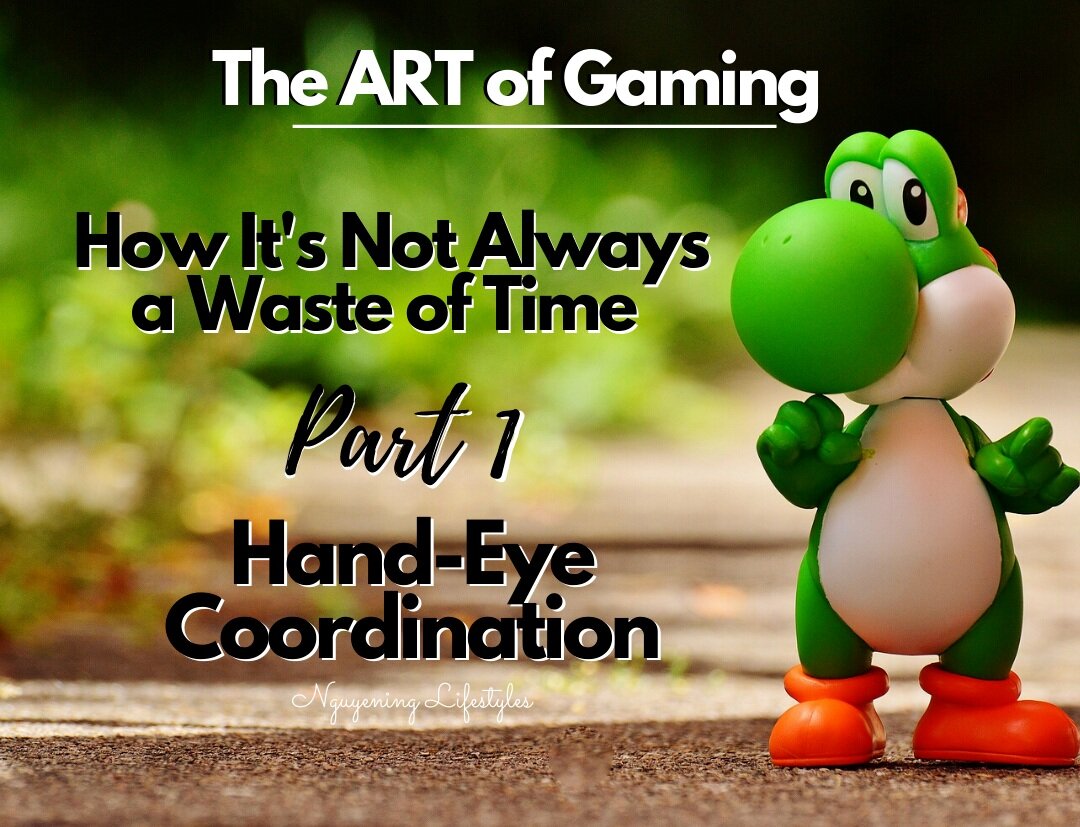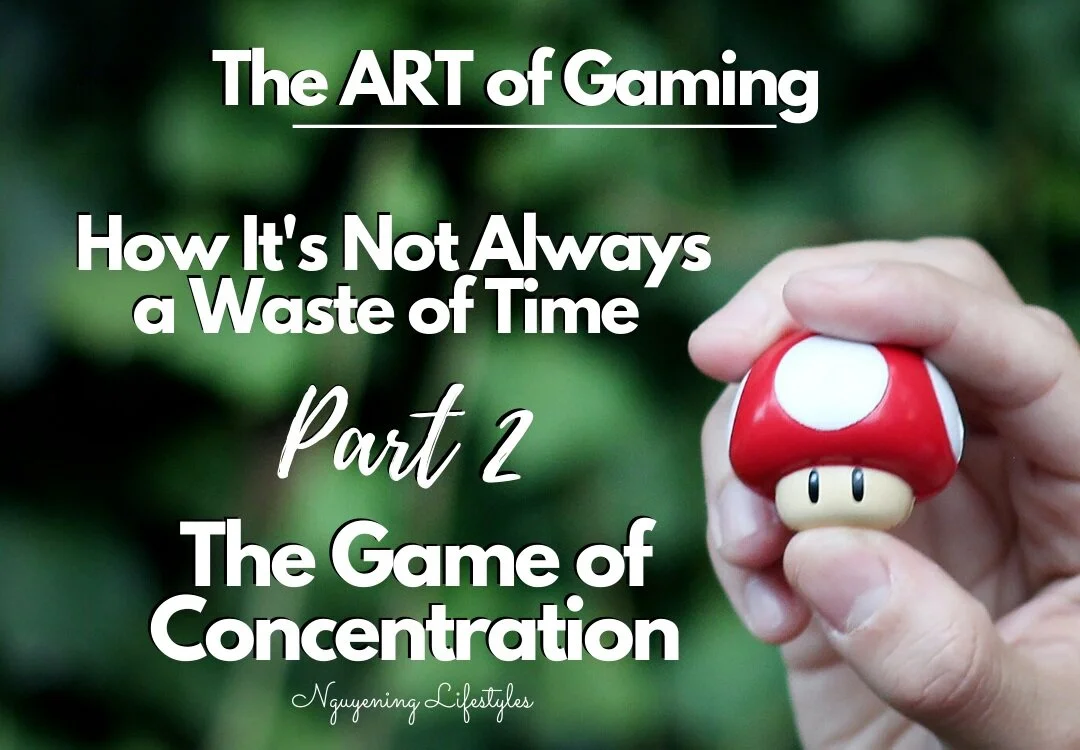The ART of Gaming and How It's Not Always a Waste of Time Part 1: Hand-Eye Coordination
 Written By: Gen Nguyen | Read full profile
Written By: Gen Nguyen | Read full profile
This post contains affiliate links which means if you click on a link and choose to make a purchase I may receive a commission at no additional cost to you. You are not obligated to do so, but it does help fund these blogs in hopes of bringing value to you! See our disclaimer for more information.
Joke of the blog: What kind of dog Pokemon can you find every hour?
Growing up, I played a lot of video games and I still kinda do. My most recent game: the Game of Life. And no, I’m not talking about the board game where you spin the wheel. But, playing video games has helped me with my coordination, concentration, and strategicness, so contrary to what your parents say, it’s not so much of a waste of time. Don’t believe me? Let me explain.
I don’t play League of Legends, Overwatch, or any other E-sport game (except Hearthstone), but I did play a lot of Call of Duty: Modern Warfare, Smash Bros, and Pokemon. And, I was (and still am) pretty good at it.
Now Pokemon… doesn’t quite fall into the category coordination and concentration skill enhancer but it does help with strategy planning which I’ll save for another post.
Let’s talk about Call of Duty (CoD) and how it helped me gain said coordination.
If you don’t know, it’s a first-person shooter (FPS) game where you… shoot… enemies… pretty self-explanatory. The game itself has a bunch of mini games and missions you can complete and you’re ranked based on the completion time and accuracy. OR you can play against other people via the Internet and kill them. But I’m not here to explain how the game works, so if you want to learn how to play, then get the game yourself.
Remember how I said my coordination skills increased from playing video games? Well thanks to CoD’s controls, I had to hold the Left Trigger to aim, press/hold (depending on the gun) the Right Trigger to shoot, press B to crouch or hold B to lie down, and press X to reload. But trust me, it’s a lot more complicated than that. You’re never always idle or stationed in one location; you’re gonna have to move around in order for the game to continue.
Because in the game, something is constantly moving, it means you might have to shoot while running towards a safe zone OR aim and shoot at someone (or something) who is moving. Do you know how hard it is to shoot something that’s moving? Maybe it’s not that hard for some people, but it requires good hand-eye coordination. You have to move the joystick ever so slightly but also fast enough to aim at the head and get that one-hit kill (you get more points). But you, yourself, have to RUN AWAY to a safe zone because you don’t want to get killed. Aiming isn’t quite easy. The road is bumpy and your vision is somewhat compromised.
Every little move requires like 100 different muscle movements. Okay, I may be exaggerating JUST A LITTLE… but trust me. It takes a lot of brain power and hand-eye coordination to get that kill shot.
It’s not only CoD that gives you good coordination. Fortnite, Overwatch, and any other FPS game can give you this skill. In fact, research shows that surgeons who play video games are better and have fewer errors than surgeons who don’t play video games.
Smash Bros is another game that can boost coordination. It may seem like a stretch, but it’s almost like CoD - you press a bunch of buttons in sequence while moving the joystick to “kill” the other player. The only difference is that there’s not as much “button pressing” and it’s not FPS. But you still have to side A to strengthen your attack and damage (or potentially kill) your opponent or X and up B to get back onto stage if you’re falling. If you’re Little Mac or any other fighter then good luck trying to get back onstage.
You also have to watch when to use a move to either 1) get back onto stage or 2) knock somewhat out. It takes a lot of concentration but we’ll get to that later in part 2: the Game of Concentration. Answer: Houndhour
Research Source: https://pubmed.ncbi.nlm.nih.gov/17309970/





